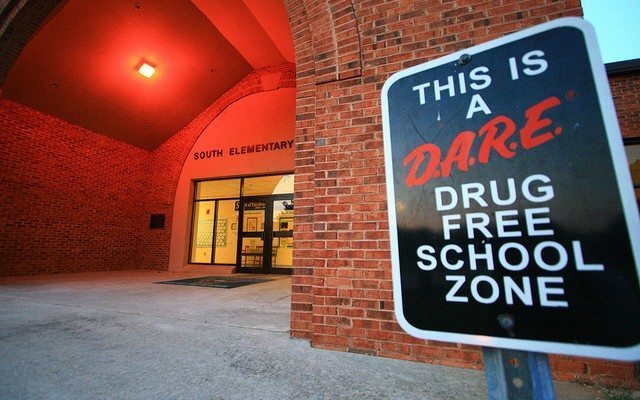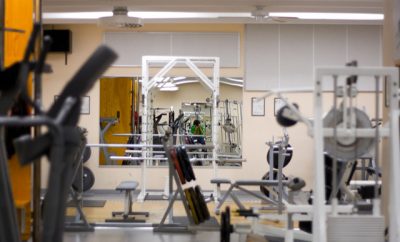
News
Cops Are Pretending to be High Schoolers…Obligatory 21 Jump Street Reference?
“Cops pretend to be 11th graders, then arrest 25 students.” This is an actual headline. This is not an advertisement for 21 Jump Street. This is not a promo for a funny cop procedural, or an SNL skit. This actually happened.
In Southern California, two undercover cops have been posing as students for the entirety of this semester, trying to weed out drug dealers, pun not intended. I didn’t really know that this was a thing that happened in real life. So I did some research. And it turns out that it’s not an isolated incident. Cops all over the country are infiltrating high schools to weed out teen drug dealers.
Let’s look at the story of Deputy Donna Rogan, from Carter County, TN. At 22, she posed as a 17 year old high school student for ten months. She did her school work, attended a full course load, and made friends. The police department called her assignment “Operation Jump Street,” referencing the 1980s hit tv show and 2012 movie about cops who go undercover in a local high school to track down drug dealers. Eventually, Deputy Regan’s investigation led to the arrest of nine students and five adults. Drugs, guns, and a couple cars were eventually confiscated. The types of drugs found included marijuana and some prescription drugs.
A similar story came out of Southern California last week. Between Perris High School and Pomona Valley High School, 25 students were arrested for selling drugs by two cops posing as 17-year-olds. They found marijuana, cocaine, crack, hashish, and prescription drugs being sold around the two secondary schools.
You can find story after story after story of young undercover cops targeting teenage drug dealers. Consider Officer Alex Salinas, who pretended to be in high school for eight months last year in Central California or this unidentified officer who infiltrated a school near Tampa Bay. And, remember, these are just the operations that were successful and publicized.
It’s good that we’re cracking down on drugs in schools. Drugs are bad. Teenagers should not be doing them. But…is this really the best way to do so?
There are a lot of inherent problems with sending cops undercover to infiltrate high schools. First, does it actually work? Well, no one is really sure. A 2007 DOJ report on undercover drug stints reported that while such operations can sometimes track down drug users and low-level dealers, they usually force the real mastermind or supplier underground. The report states that stings have not conclusively resulted in success.
Then there’s the ethical side of things. Most of the kids who are busted are buying or selling relatively small amounts of the drug. In a state like California, where it’s pretty easy to get medical marijuana, the amounts being sold are relatively inconsequential. I’m not saying that their behavior is ok but I think there’s a greater ‘good’ argument to be made here. These undercover cops, who are adults my age and a bit older are going into high school to interact with 14 to18-year-olds. While 4 or so years may not seem that much, I can assure there’s a huge difference in the maturity of a 17-year-old and a 22-year-old. And so the cops go in and gain the teen’s trust then manipulate them and eventually turn around to arrest the young person with whom they’ve spent the past few months building a rapport.
In weighing the costs, is harming the trust of a kid over a little bit of weed worth it? Maybe. But there’s a lot of potential for harm. For example, an 18-year-old student named Justin in Palm Beach fell in love with a 25-year-old woman, who was posing as an undercover cop. She asked him to get her marijuana, he said he didn’t smoke, but that he would help her find some. After she asked him many times, the kid helped track down some for his new “girlfriend” and gave it to her. She arrested him.
The Snodgrass family of Temecula, CA is filing a lawsuit against an undercover cop, who they allege tricked their autistic son into buying marijuana for him. They claim that the ordeal indicated negligence, and resulted in emotional distress. The boy was befriended by an undercover deputy, which thrilled his parents because he had a hard time making friends. The deputy hounded Snodgrass to buy pot for him, and he eventually did, leading to his arrest.
Quite frankly, I think this is ridiculous. Regardless of the good short term effects in getting some drugs out of schools, I think the effect it can have on high school students is much worse. If we want our young people to be law-abiding and trustful citizens, is this really the best way to introduce them to the justice system?
—
Anneliese Mahoney (@AMahoney8672) is Lead Editor at Law Street and a Connecticut transplant to Washington D.C. She has a Bachelor’s degree in International Affairs from the George Washington University, and a passion for law, politics, and social issues. Contact Anneliese at amahoney@LawStreetMedia.com.
Featured image courtesy of [Ivy Dawned via Flickr]








Comments